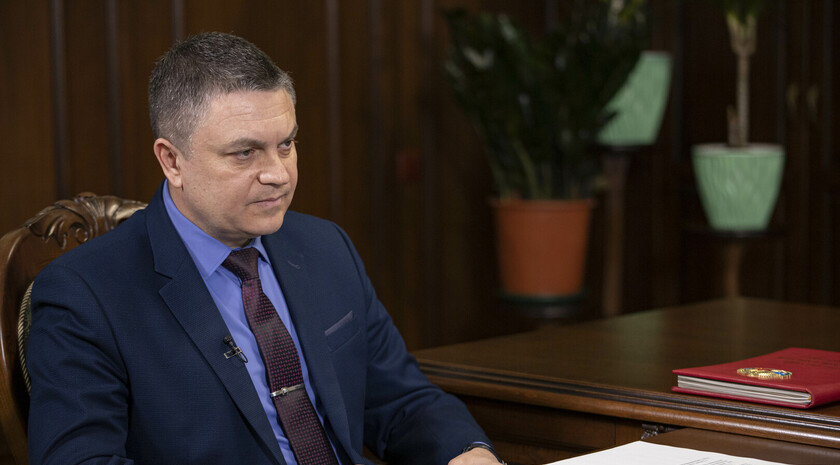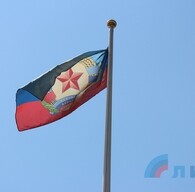The LPR Head Leonid Pasechnik will go to the polls in the September elections for the Russian State Duma.
"Like hundreds of thousands of LPR residents, I too will exercise my right to vote and cast my ballot. All the more so because we have the opportunity to vote remotely," he said in an interview to the Russian TASS News Agency.
"Most comfortable conditions for voting have been created."
Pasechnik said that the LPR is constantly developing with the assistance of the Russian Federation. "Thanks to Russian humanitarian initiatives, we have the possibility to repair civilian infrastructure destroyed by the Ukrainian army and put industrial facilities into operation. We are reviving healthcare, which was neglected by Ukraine for years," he said.
"The Republic is gradually merging with the Russian legal framework."
Since July 1, LPR Migration Service offices began to accept applications from LPR residents for Individual Insurance Account Number (SNILS) and account registration on the Russian portal for state services. SNILS and registration pave the way for participation in remote voting.
On April 24, 2019, Russian President Vladimir Putin signed a decree relaxing citizenship requirements for residents of the Lugansk People's Republic and the Donetsk People's Republic. The first center for LPR residents applying for Russian citizenship opened in Lugansk on May 6; on June 14, the first group of LPR residents received Russian passports. The Republic currently has such centers in all towns and districts. On April 24, 2020, Putin signed a law exempting Donbass Republics residents from paying the state fee for obtaining citizenship.
As of mid-June 2021, more than 250,000 LPR residents had been granted fast-track Russian citizenship. According to the first deputy chairman of the Russian parliament's committee on CIS affairs, Eurasian integration and relations with compatriots Viktor Vodolatsky, more than 600,000 Donbass residents had already received Russian citizenship under the fast-track procedure. *t


